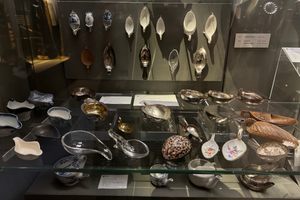Founded in 1518 by King Henry VIII, the Royal College of Physicians is one of the oldest medical institutions in the world, and its museum is a treasure trove for anyone interested in the history of medicine. The museum is housed within the college’s modernist building, designed by the architect Sir Denys Lasdun. Visitors to the museum can explore exhibitions that cover a wide range of topics, from medical innovations and anatomical studies to the history of healthcare and the development of treatments for diseases that were once deadly.
One of the highlights of the museum is its collection of medical instruments, which charts the evolution of medical practice over centuries. From early surgical tools that look more suited to a blacksmith than a doctor, to the refined instruments used in today’s operating rooms, the collection offers a vivid sense of how far medicine has progressed.
Art also plays an important role in the museum’s displays, with many portraits of influential physicians from the past. These portraits, dating back hundreds of years, offer not only a view of the medical pioneers who shaped modern healthcare but also a reflection of the status and esteem in which these individuals were held.
The Royal College of Physicians Museum doesn’t just focus on historical medicine—it also explores contemporary issues in healthcare and medical ethics. The college’s ongoing commitment to medical education is evident in its modern exhibitions, which cover topics such as the ethics of medical research, the future of healthcare, and the importance of mental health. This emphasis on the present and future of medicine makes the museum a dynamic institution that continues to inspire learning and discussion about healthcare in the modern world.
